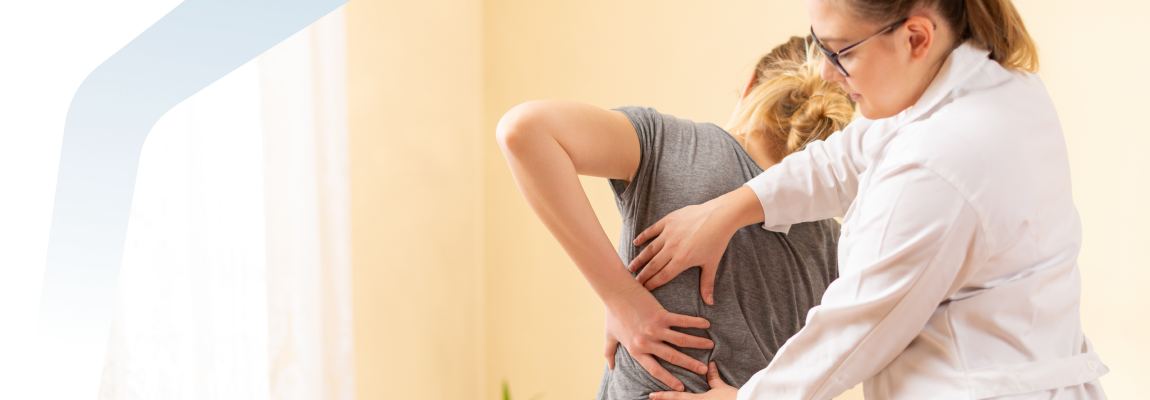

Spinal Stenosis Pain Treatments
Personalized Pain Management Plans
A precise diagnosis is crucial for accurate treatment of back or neck pain. Spinal stenosis, a common cause of discomfort, is a narrowing of the spinal canal that reduces space for the spinal cord. The interventional pain specialists and dual-board certified physicians at Commonwealth Pain & Spine can help relieve your back pain and other symptoms associated with spinal stenosis through various treatment options.
Who Is at Risk of Experiencing Spinal Stenosis?
Spinal stenosis can affect people of all ages but is most common in those over 50 or those with neck or spine injuries, arthritis, and degenerative spine conditions. It can occur at birth or develop with age, often occurring in the lumbar (lower) spine or cervical (neck). Signs you may be experiencing spinal stenosis include:
- Lumbar Spine Stenosis: Lower back pain, sciatica (pain, numbness, and weakness in the legs), and claudication (leg cramping when standing or walking).
- Cervical Spine Stenosis: Neck pain extending through the shoulders and arms, weakness or tingling in the arms or hands, balance issues, and difficulty walking.
If you have these symptoms or risk factors, Commonwealth Pain & Spine can help identify and treat spinal stenosis with a personalized treatment plan.
We Offer a Range of Treatments for Spinal Stenosis
Everyone's experience with spinal stenosis is unique, and our dual-board certified physicians are dedicated to creating personalized treatment plans for each patient. Some possible treatments include:
- Physical Therapy: Engaging in specifically designed exercises to strengthen your back, improve flexibility, and reduce pressure on your nerves.
- Medication: Anti-inflammatory drugs, such as oral or injectable steroid injections, may reduce inflammation and relieve pain.
- Surgical Options: When nonsurgical treatments don't provide enough relief, procedures like a laminectomy or laminotomy may be recommended to decompress the affected spinal area.
Our goal is to provide relief from the discomfort and limitations brought on by spinal stenosis, assuring you that we're here to support you through every step of your treatment plan.
How We Help You Find Relief from Spinal Stenosis Pain
Our skilled physicians use advanced diagnostics and personalized treatments to alleviate your discomfort and improve your quality of life. Start with a self-referral – we'll contact your PCP for a referral and then set up your appointment.
What you can expect from your spinal stenosis treatment:
- Diagnostic Testing: During your first visit, our physicians will conduct a thorough physical exam to evaluate your symptoms, range of motion, and discomfort. They may request X-rays, MRIs, or nerve conduction studies to visualize your spine, identify the stenosis, and rule out other contributing factors.
- Customized Treatment Plan: Based on your evaluation and diagnostic test results, our team will collaborate to create a personalized treatment plan that addresses your pain, from physical therapy to surgery if necessary.
- Ongoing Support: Our team will be with you throughout your pain relief journey. We'll schedule regular follow-up appointments to assess your progress, adjust your plan as needed, and provide the support and guidance you need to achieve optimal results.
Between our best-in-class physicians and innovative treatments, there's so much to benefit from when seeking treatment for spinal stenosis at Commonwealth Pain & Spine.

-
It's Easy to Get Started
Start your journey with our compassionate guidance and expertise.
-
 Request an Appointment
Request an AppointmentFind an office and share your details in our request appointment form to start the process of finding relief.
-
 We'll Connect With Your Physician
We'll Connect With Your PhysicianOur team will contact your primary care physician to secure the necessary information.
-
 We'll Schedule Your Appointment
We'll Schedule Your AppointmentOnce your physician’s referral is received, we'll reach out to schedule your initial appointment. We aim to get you seen within two weeks.


